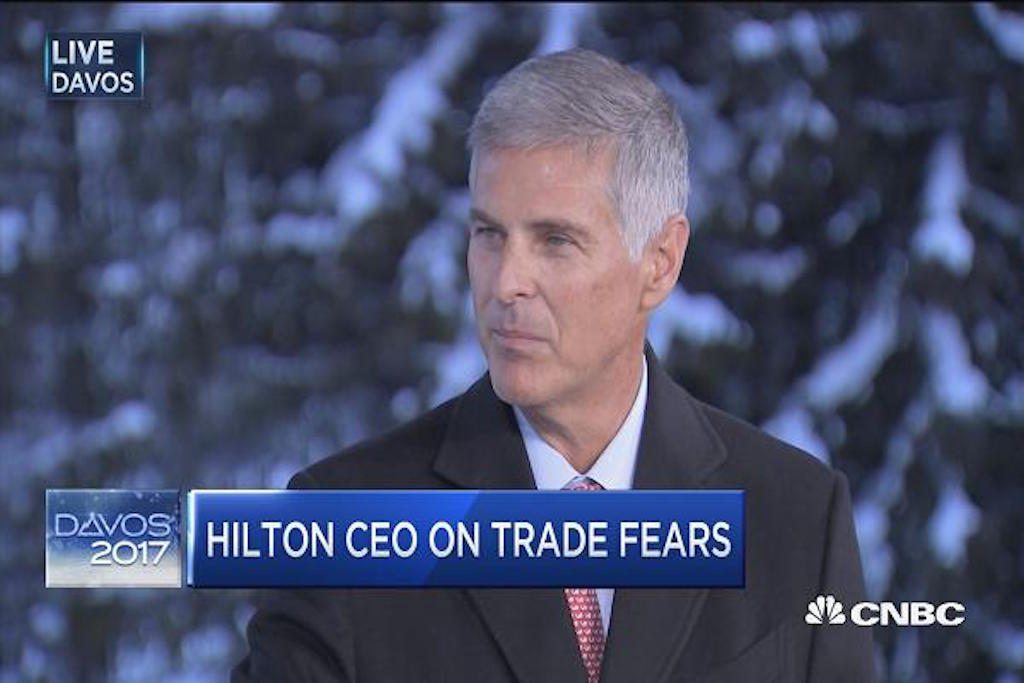Hilton CEO Sees Optimism Lifting Business Travel in 2017

Skift Take
Unlike Marriott CEO Arne Sorenson, Hilton CEO Christopher Nassetta finds a bit of optimism in the new U.S. administration change, at least when it comes to corporate business travel.
Hilton CEO Christopher Nassetta thinks 2017 could, potentially, be a good year for corporate business travel, perhaps owing to the so-called "Trump Bump" or "Trump Effect" that's being noted by some industry watchers and downplayed by others.
Speaking to CNBC from the World Economic Forum in Davos, Switzerland, Nassetta said he has "optimism going into this year," given that Hilton just completed the spinoffs of its timeshare and real estate investment trust earlier this month, and that early signs point to more U.S. corporations increasing their business travel in 2017.
"Broadly, in American CEOs, there's a more optimistic view," Nassetta said. "We do see the early telltale signs that corporate America is becoming
